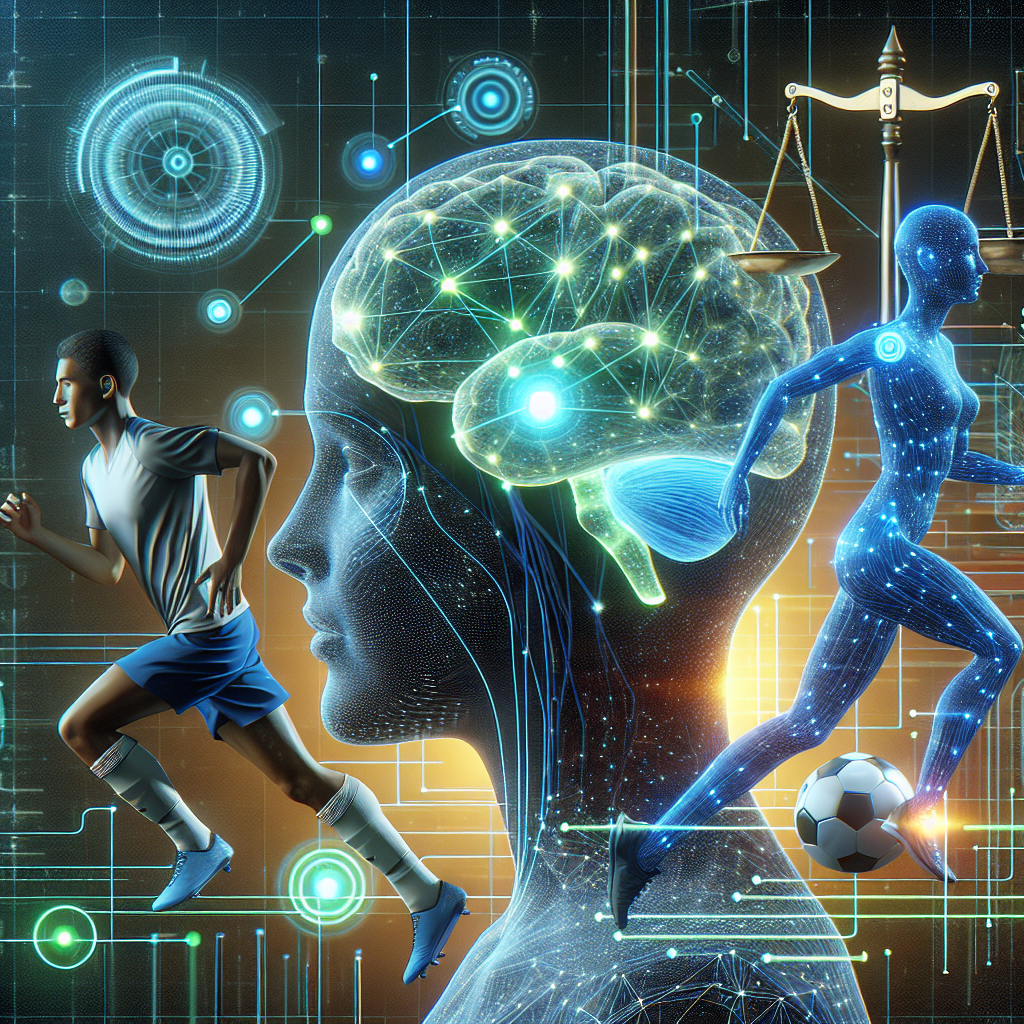The use of artificial intelligence (AI) in sports performance data analysis has become increasingly prevalent in recent years. AI technologies have the ability to process large amounts of data quickly and accurately, providing coaches and athletes with valuable insights into their performance and strategies for improvement. However, the use of AI in sports performance data analysis also raises important ethical considerations that must be carefully considered.
One of the key ethical considerations surrounding the use of AI in sports performance data analysis is the issue of data privacy and security. As AI technologies collect and analyze large amounts of personal data, including biometric and health information, there is a risk that this sensitive information could be misused or exploited. It is essential that athletes and coaches are informed about how their data is being collected, stored, and used, and that appropriate measures are in place to protect their privacy and security.
Another ethical consideration is the potential for bias in AI algorithms. AI systems are only as good as the data they are trained on, and if this data is biased or incomplete, it can lead to inaccurate or unfair conclusions. For example, if AI algorithms are trained on data from predominantly male athletes, they may not accurately capture the performance patterns of female athletes. It is crucial that AI algorithms are regularly audited and tested for bias, and that steps are taken to mitigate any potential biases that are identified.
Furthermore, there is a concern about the potential for AI technologies to replace human judgment and decision-making in sports performance analysis. While AI systems can provide valuable insights and recommendations, they should not be relied upon as the sole source of information. Coaches and athletes must continue to use their own expertise and intuition when making decisions about training, tactics, and performance strategies.
In addition, the use of AI in sports performance data analysis raises questions about accountability and transparency. Who is ultimately responsible for the decisions made based on AI-generated insights? How can athletes and coaches trust that the recommendations provided by AI systems are accurate and reliable? It is essential that there is clear communication and accountability mechanisms in place to ensure that the use of AI in sports performance data analysis is transparent and fair.
Despite these ethical considerations, the use of AI in sports performance data analysis has the potential to revolutionize the way athletes train and compete. AI technologies can provide athletes and coaches with valuable insights into their performance, helping them to identify strengths and weaknesses, set goals, and make informed decisions about training and competition strategies. By harnessing the power of AI, athletes can optimize their performance and maximize their potential in ways that were previously unimaginable.
FAQs:
1. How is AI used in sports performance data analysis?
AI is used in sports performance data analysis to process large amounts of data quickly and accurately, providing athletes and coaches with valuable insights into their performance. AI technologies can analyze biometric data, track movement patterns, identify trends and patterns, and make recommendations for training and competition strategies.
2. What are some of the ethical considerations surrounding the use of AI in sports performance data analysis?
Some of the key ethical considerations include data privacy and security, bias in AI algorithms, the potential for AI to replace human judgment, and accountability and transparency. It is essential that athletes and coaches are informed about how their data is being used, that AI algorithms are regularly audited for bias, and that there are clear communication and accountability mechanisms in place.
3. How can athletes and coaches ensure that the use of AI in sports performance data analysis is ethical?
Athletes and coaches can ensure that the use of AI in sports performance data analysis is ethical by being informed about how their data is being collected and used, by questioning the recommendations provided by AI systems, by continuing to use their own expertise and intuition in decision-making, and by advocating for transparency and accountability in the use of AI technologies.
4. What are some of the benefits of using AI in sports performance data analysis?
Some of the benefits of using AI in sports performance data analysis include the ability to process large amounts of data quickly and accurately, to identify trends and patterns that may not be apparent to the naked eye, to make recommendations for training and competition strategies, and to optimize performance and maximize potential.
5. How can bias in AI algorithms be mitigated in sports performance data analysis?
Bias in AI algorithms can be mitigated in sports performance data analysis by regularly auditing and testing the algorithms for bias, by ensuring that the data used to train the algorithms is diverse and representative, and by implementing measures to address any biases that are identified. It is essential that athletes and coaches are aware of the potential for bias in AI algorithms and advocate for fair and transparent use of AI technologies.

